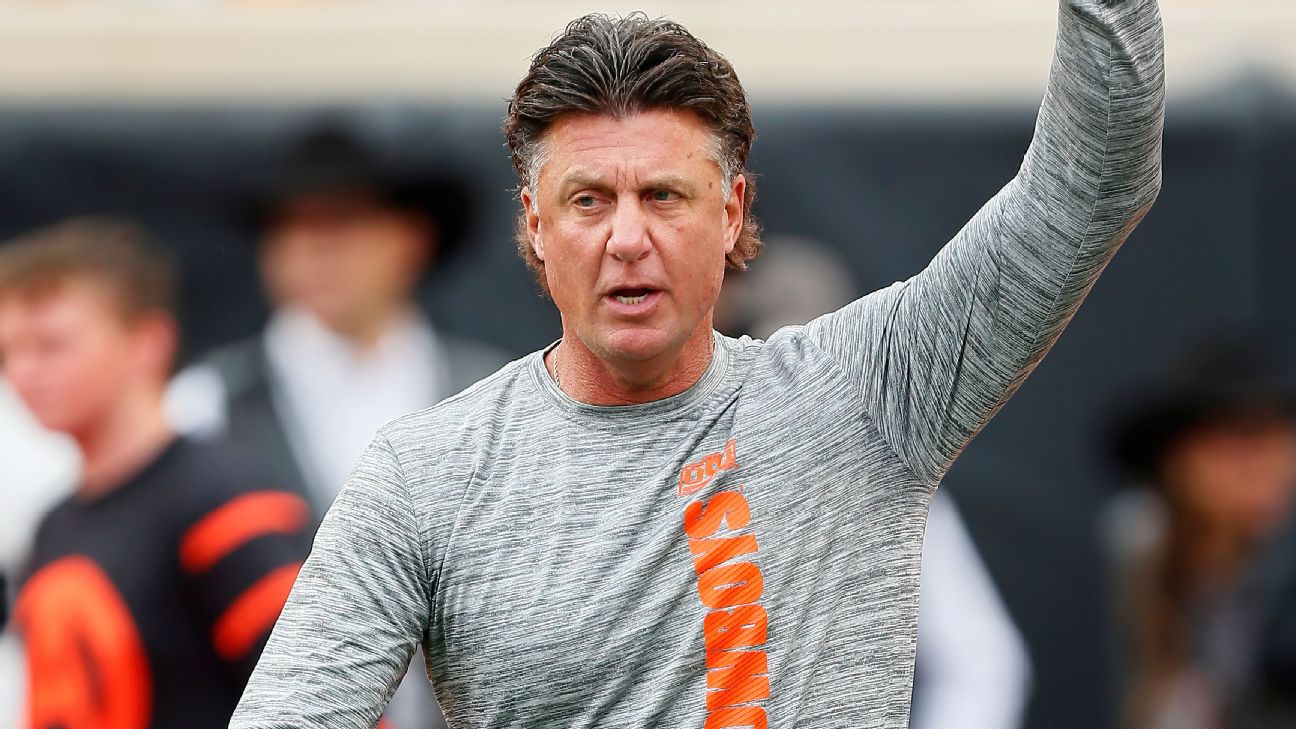The Week 2 matchup between Oklahoma State and Oregon just got a little more interesting, thanks to a war of words between Cowboys coach Mike Gundy and Ducks coach Dan Lanning.
Gundy Highlights Spending Gap
During his weekly radio show on Monday, Gundy drew attention to the financial disparity between his program and Oregon’s.
“We’ve spent around $7 million on our team over the past three years,” Gundy said. “I think Oregon spent close to $40 million last year alone. Now, I might be off a few million.”
Also Read
Gundy went further, suggesting Oregon’s deep pockets affect not only player retention but also scheduling decisions.
“It’ll cost a lot of money to keep their quarterback, Dante Moore,” he said. “And with what they’re spending, maybe they should only schedule teams with similar budgets outside of the Big Ten.”
The comments, though partly tongue-in-cheek, struck a chord as Gundy questioned how financial resources are reshaping competitive balance in college football.
Lanning Responds: ‘We Spend to Win’
By Monday night, Lanning was asked about Gundy’s remarks during his press conference, and he didn’t hold back.
“If you want to be a top-10 team in college football, you better be invested in winning,” Lanning said. “We spend to win. Some people save to have an excuse for why they don’t. I can’t speak on their situation; I have no idea what they got in their pockets over there.”
Still, Lanning made a point to soften the jab by acknowledging Gundy’s long-standing success in Stillwater.
“I’ve got a lot of respect for Coach Gundy,” he added. “He’s led that team to winning seasons for 20 years.”
Respect and Rivalry
Both teams head into Week 2 undefeated. Oregon, currently ranked No. 7 and expected to contend for a College Football Playoff berth, handled its opener with ease. Oklahoma State also sits at 1-0, but Gundy is clearly aware of the challenge ahead.
“Over the last three to five years, they’ve elevated themselves,” Gundy said. “They have a lot of resources. They’ve got them stacked out there pretty good right now.”
The underlying theme is clear: Oregon’s investment—through facilities, recruiting, and NIL (Name, Image, and Likeness) support—has vaulted them into the nation’s elite, while programs like Oklahoma State operate on much leaner budgets.
NIL Money and Past Barbs
This isn’t the first time Oregon’s resources have drawn public comments. Last year, Georgia coach Kirby Smart joked at SEC Media Days that he wished he could tap into “some of that NIL money” from Oregon alum and Nike co-founder Phil Knight.
At the time, Lanning—formerly Smart’s defensive coordinator—responded with humor of his own.
“I think it’s impressive that Coach Smart has been signing the No. 1 class in the nation without any NIL money this entire time,” Lanning quipped. “But if you want to be a top-10 team, you better have great support. We have that.”
The exchange was playful, reflecting their professional ties. Gundy’s comments, however, carried a more pointed tone about fairness and scheduling.
Lanning’s Parting Shot
Lanning also addressed Gundy’s implication that Oregon shouldn’t play lower-budget opponents.
“I’m sure UT-Martin didn’t have as much as Oklahoma State last week, and they played,” Lanning said. “So, we’ll let it play out.”
The remark drew laughter from reporters but underscored his central point: Oregon isn’t going to apologize for its resources, nor will it shy away from competition.
Looking Ahead
The verbal back-and-forth adds spice to a nonconference game already drawing attention. It also highlights one of college football’s pressing issues: the widening financial gap between programs.
For Gundy, the budget talk was about spotlighting the challenge of competing with resource-rich schools. For Lanning, it was about affirming Oregon’s ambition.
As kickoff approaches, both teams bring different financial realities to the field—but once the whistle blows, it will come down to execution, not budgets.












